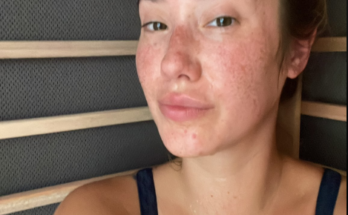When we remember the popular novel Things Fall Apart which was written in 1958 and later the movie was released in 1986 that featured Nigerian great actor Pete Edochie, our heart goes to Albert Chinụalụmọgụ (meaning: “May God fight on my behalf”) Achebe, a Nigerian novelist, poet, professor, and critic. This wonderful man was born on 16 November 1930 in the Igbo town of Ogidi in eastern Nigeria to Isaiah Okafo Achebe and Janet Anaenechi Iloegbunam who were converts to the Protestant Church Mission Society (CMS) in Nigeria. He got married to Christiana Chinwe Okoli in 1961, a marriage that produced 4 children; Nwando Achebe, Chidi Chike Achebe, Chinelo Achebe and Ikechukwu Achebe. Chinua died on 21 March 2013.
Education
St Philips’ Central School – 1936
Central School, Nekede
Government College in Umuahia
University College (now the University of Ibadan)
Read: Wole Soyinka Biography
He abandoned the study of medicine and changed to English, history, and theology. Because he switched his field, however, he lost his scholarship and had to pay tuition fees. He received a government bursary, and his family also donated money – his older brother Augustine gave up money for a trip home from his job as a civil servant so Chinua could continue his studies. From its inception, the university had a strong Arts faculty; it includes many famous writers amongst its alumni. These include Nobel Laureate Wole Soyinka, poet and playwright John Pepper Clark, and poet Christopher Okigbo. Elechi Amadi is also another famous writer who studied at the university in the 1950s, although he was in the faculty of sciences.
Novels
Things Fall Apart (1958)
No Longer at Ease (1960)
Arrow of God (1964)
A Man of the People (1966)
Anthills of the Savannah (1987)
Children’s books
Chike and the River (1966)
How the Leopard Got His Claws (with John Iroaganachi) (1972)
The Flute (1975)
The Drum (1978)
Nigeria-Biafra War
In May 1967, the southeastern region of Nigeria broke away to form the Republic of Biafra; in July the Nigerian military attacked to suppress what it considered an unlawful rebellion. Achebe’s colleague, Christopher Okigbo, who had become a close friend of the family (especially of Achebe’s son, young Ikechukwu), volunteered to join the secessionist army while simultaneously working at the press. Achebe’s house was bombed one afternoon; Christie had taken the children to visit her sick mother, so the only victims were his books and papers. The Achebe family narrowly escaped disaster several times during the war. Five days later, Christopher Okigbo was killed on the war’s front line. Achebe was shaken considerably by the loss; in 1971 he wrote “Dirge for Okigbo”, originally in the Igbo language but later translated to English.
As the war intensified, the Achebe family was forced to leave Enugu for the Biafran capital of Aba. As the turmoil closed in, he continued to write, but most of his creative work during the war took the form of poetry. The shorter format was a consequence of living in a war zone. “I can write poetry,” he said, “something short, intense more in keeping with my mood … All this is creating in the context of our struggle.” Many of these poems were collected in his 1971 book Beware, Soul Brother. One of his most famous, “Refugee Mother and Child”, spoke to the suffering and loss that surrounded him. Dedicated to the promise of Biafra, he accepted a request to serve as foreign ambassador, refusing an invitation from the Program of African Studies at Northwestern University in the US. Achebe traveled to many cities in Europe, including London, where he continued his work with the African Writers Series project at Heinemann.



